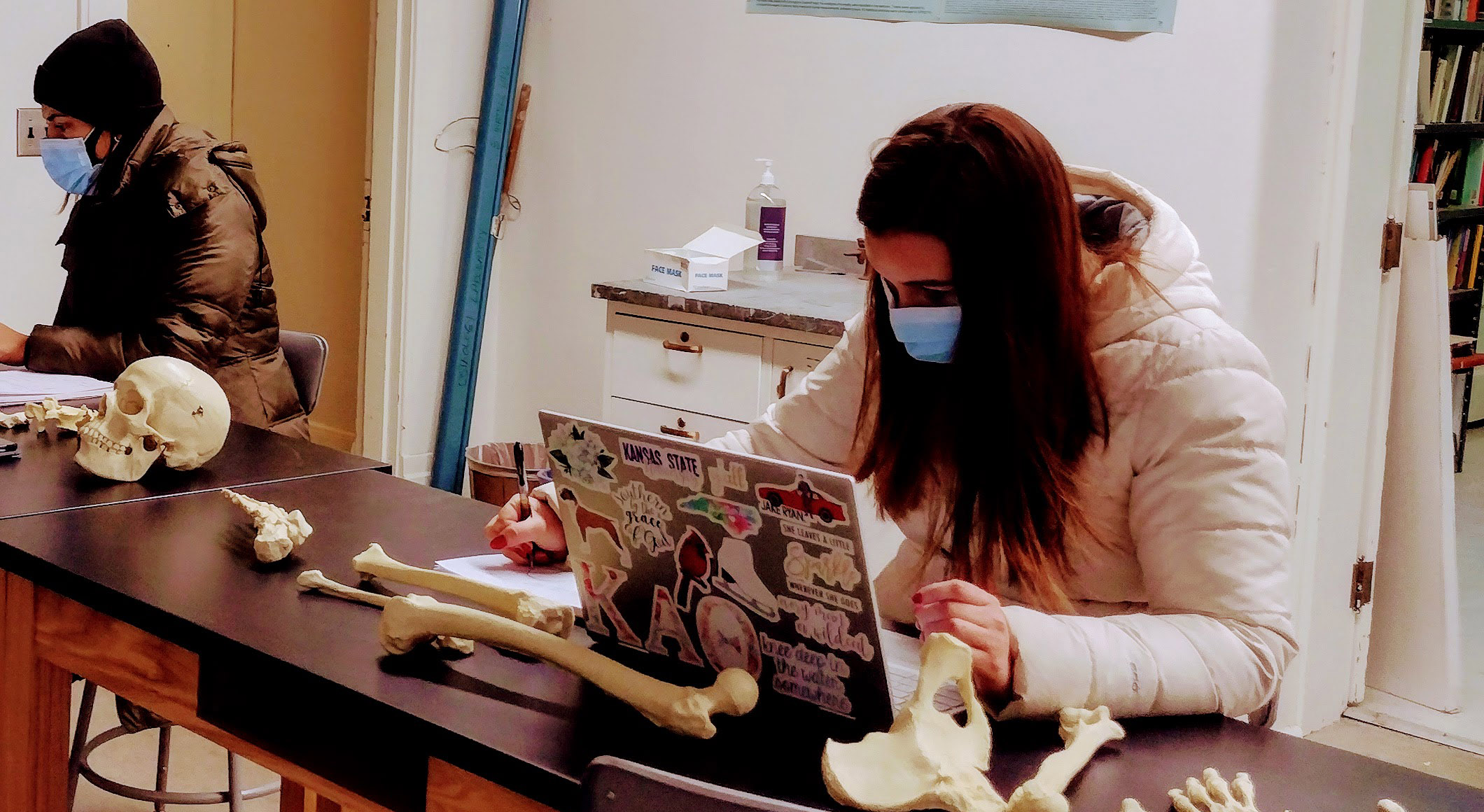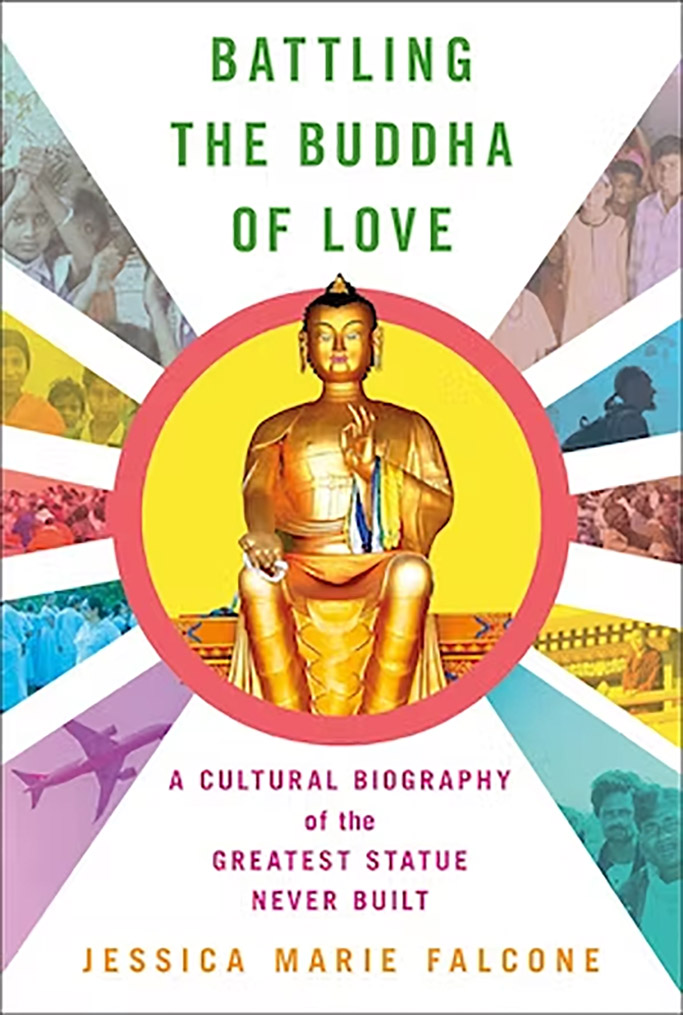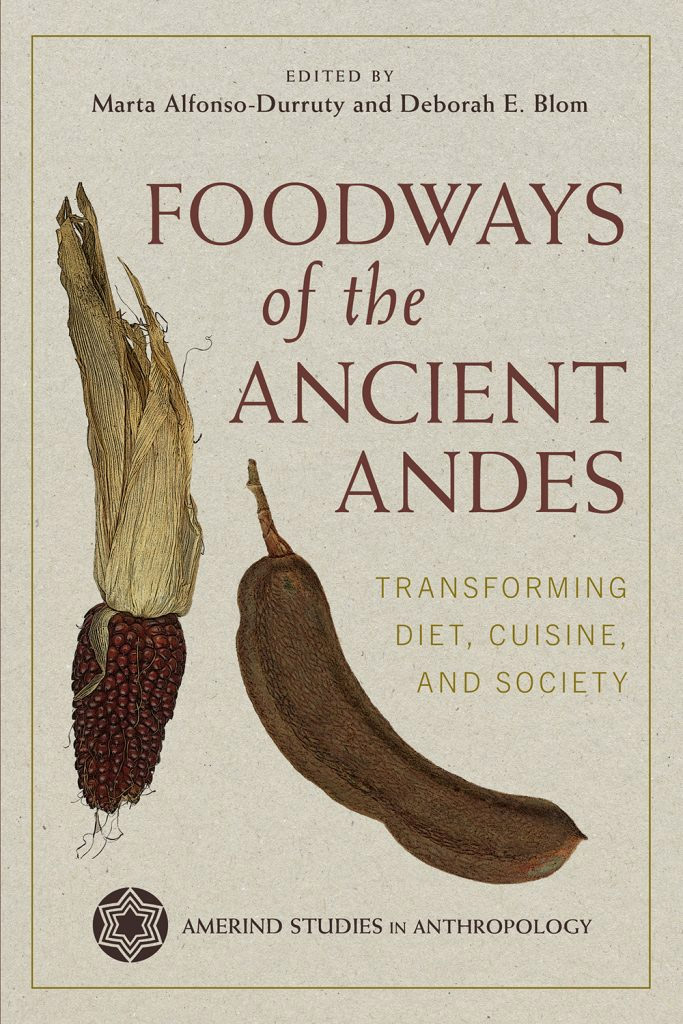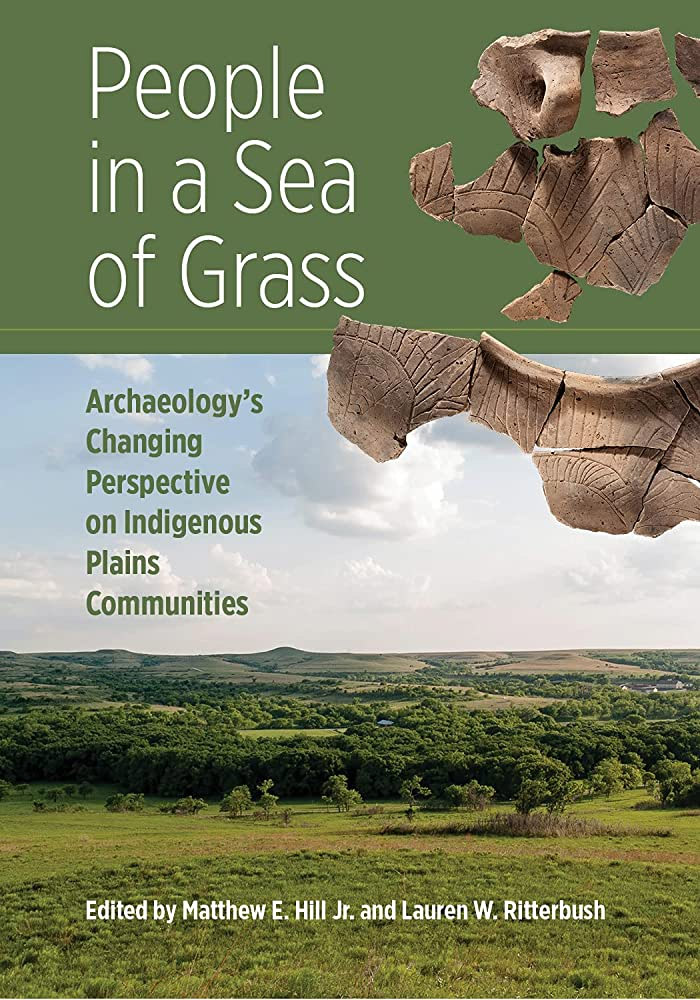
Research in Anthropology
Research
The Anthropology Program faculty and students at Kansas State Univesity have six main research focuses. These include: (1) Religion and Culture; (2) Culture and Environment; (3) Humans in the Past; (4) Medicine and Society; (5) Museum Studies and Collection Management, and (6) Digital Anthropology. Through their research activities, the Anthropology Program Professors also provide unique research opportunities for their undergraduate students. In addition to these research themes, the Anthropology Program at Kansas State University and the Univerity at large are committed to the respectful repatriation of Native American cultural items under the guidance of the Native American Graves and Repatriation Act. Learn more about Kansas State Commitment to NAGPRA.
Culture and Environment
The study of the interaction between culture, society and the environment expands from groups that lived long ago, to the modern Anthropocene, were human impacts on the environment are happening faster than ever. This research area includes work on how our changing world has impacted various cultures around the world, including subcultures close to home, such as Kansas ranchers and farmers.
Dr. Durbin and Dr. Alfonso-Durruty conduct research that examines the effects of human activity, and human adaptation in the environment, as well as the wellbeing of populations. Dr. Alfonso-Durruty works on analyzing past human activities, in particular diet, its environmental factors, and its impacts on human population's wellbeing. In addition, Dr. Alfonso-Durruty is currently collaborating with the Cape Horn International Research Center for Global Health Studies and Biocultural Conservation (CHIC). At CHIC, Dr. Alfonso-Durruty and a team of international researchers study biodiversity response to climate change, analyze biocultural homogenization, and examine biocultural conservation with the goals of proposing solutions through educational practices, and by focusing on sustainability and social-environmental justice. Dr. Durbin is interested in the political ecology of marine biodiversity conservation and alternative energy production. Dr. Durbin’s interests in the cultural dimensions of alternative energy in the United States includes the production of biofuels from woody biomass in the Western United States and wind energy production on West Texas ranches.
Digital Anthropology
The digital humanities sit at the intersection of technology and the humanities, and digital anthropology is our contribution to that growing research area. Our anthropology faculty have consistently worked to integrate technology into our output and methods, and also to study some of the ways that changing technocultures are impacting modern society.
Over the past decade, Dr.Wesch has consistently bolstered his digital methods toolkit in order to best share his research in digital form. He has skillfully made, and taught students to make, ethnographic films and videos that bring cultures to life. He has published work on changing digital mediascapes, and his cutting-edge talk at the Library of Congress about YouTube culture--https://www.youtube.com/watch?v=TPAO-lZ4_hU-- has been viewed more than two million times.
Dr. Falcone has developed expertise in doing ethnographic research in virtual worlds. From 2010-2020, she studied Buddhist practices in the virtual world of Second Life. She is widely published in the areas of digital religious practices, virtual materiality, and virtual ephemerality.
Dr. Alfonso-Durruty has worked extensively in the production of 3D models and the printing of analogs based from human remains. She is particularly concern with the ethical implications of these practices, and the limitations of their applications.
Humans in the Past
Understanding humanity and its diversity, both culturally and biologically, requires us to studu the many peoples and societies that preceded us. Our faculty gain insights about past populations through biocultural archaeological, and ethnohistoric analyses of biological and material remains, as well as documentary sources.
K-State Archaeologist, Dr. Ritterbush, works on interpreting the many ways people have made their home in the Great Plains region of North America over the past 13,000 years. This is accomplished through the documented recovery and careful analysis of materials remains of past activities of Indigenous peoples in this region. Dr. Ritterbush studies focus on understanding native lifeways within the past 2000 years and the adjustments and impacts of mobile and migrant groups into the Central Plains. This research has been made available to the public through museum exhibitions, such as the Winds of the Past gallery in the Flint Hills Discovery Center in Manhattan, Kansas, and presented in various journals and edited volumes.
Ethnohistoric analysis of non-native documentary sources are used to gain insights into cultural change and continuity during the period of contact between the Native inhabitants of the region and foreign powers. A primary area of ethnohistoric research at K-State is elucidating changes in Kanza (Kaw) society brought about by the fur trade, related economic pursuits and the imposition of different cultural norms (e.g., ownership) and power by Europeans and Euro-Americans during and following initial contact. To learn more about this, and access the information available to the public, visit Dr. Ritterbush’s page.
Dr. Alfonso-Durruty examines the lives of past peoples in the Semi-arid region and the Fuego-Patagonia area of Chile. In her studies, Dr. Alfonso-Durruty analyzes diets through a multiprong approach that combines the study of diseases, dental pathology, and stable isotope analysis. In addition, Dr. Alfonso-Durruty is interested in biocultural practices, such as cranial modification and violence, that can reveal different forms of information circulation and mores among these groups. Moreover, Dr. Alfonso-Durruty assesses population history through estimations of biodistance and the integration of molecular, archaeological and bioracheology data, to unveil the degree of relatedness that these groups had, and the migrations routes that they followed.
Medicine and Society
K-State has been steadily building its research area in the anthropology of medicine, health, and healing. Not only do we offer several classes in this area, we have faculty who have aspects of their research that contribute to this specialization.
Dr.Alfonso-Durruty works on analyzing the health of past populations in several regions in Chile. Her analysis explores bioarchaeological data from human remains, that can unveil information about dietary deficiencies, pathogens, and infections that affected populations in the past.
Dr.Durbin’s research in this area primarily focuses on agricultural health and safety. His interests include forestry and wildfire safety and children’s farm health and safety. Dr. Durbin is also an external investigator at the National Children’s Center for Rural and Agricultural Health and Safety (NCCRAHS) in Marshfield, Wisconsin and is a co-PI on a five-year CDC-NIOSH funded project called “The Farm-Kid Paradox: Anthropological Inquiry into the Benefits and Risks of Child-Interaction.” https://marshfieldresearch.org/nccrahs/FarmKidParadox
Because of our strong interest in the study of medicine and society, our faculty has built an interdisciplinary certificate in Global Health, Medicine, and Society.
Museum Studies and Collections Management
Our faculty have worked in museums, advised them about exhibits and displays, and maintained and preserved our university archaeology and ethnographic collections. Dr. Ritterbush has worked as a collections manager, curator and exhibit designer, and public education coordinator with the University of Kansas anthropology museum and collections, as well as served as a lead researcher and consultant for new museums in Scott City and Manhattan, Kansas. Her expertise has also been utilized in preservation and interactive exhibition design for the State Historical Society of North Dakota. As manager of K-State's archaeological and ethnographic collections, Dr. Ritterbush has guided students with collections-based research, exhibit design, and curation projects.
Dr. Alfonso-Durruty has extensive experience working in and with museums in Chile. Her work extends from creating inventories and databases, to museum data management, exhibit preparation and design, and the generation of educational material for museums.
With an emphasis on Buddhist holy objects, relic displays, and statue-making, Dr.Falcone’s work in art and anthropology adds to the breadth of material culture studies in the anthropology program at Kansas State University.
The Anthropology Program at Kansas State University has run a Museum Studies Internship program for over 30 years, which has enabled our students to do research and collaborative projects with area and regional museums, such as the Riley County Historical Society, the U.S. Calvary Museum at Ft. Riley, K-State's Mariana Kistler Beach Museum of Art and Historic Costume and Textiles Museum, as well as historical and cultural institutions in the region (e.g., Exploration Place, Wichita; Archaeology division of the Kansas Historical Society and various state historic sites; Glore Psychiatric Museum, St. Joseph).
The Anthropology program at Kansas State have taken a lead on developing opportunities for museum studies at K-State and elsewhere, and as part of that endeavor has spearheaded a proposed Certificate in Museum Studies.
Religion and Culture
Religion permeates the human experience in countless cultures around the world. Two K-State professors specialize in the Anthropology of Religion: Dr.Michael Wesch and Dr.Jessica Falcone. Dr.Falcone has studied South Asian religious practices in India and the diaspora for almost two decades. She has focused on Hindu, Sikh and Buddhist practices in Indian cultural contexts. Her work on transnational Buddhism has taken her from the rural fields of Kushingar, India, to a Japanese-American temple in Hawaii. Furthermore, she has developed expertise in digital religious practices through long-term fieldwork on Buddhist practices in a virtual world.
Dr. Wesch has studied witchcraft and Christianity in Papua New Guinea and is currently studying the cosmology of the Cao Dai religion in southern Vietnam. Cao Dai blends Catholicism, Buddhism, Taoism, Confucianism, Spiritism, and Vietnamese folk traditions into a religion with approximately 6 million followers. Dr. Wesch documents the world’s religions through original videos and shares them with his classes, as well as on his YouTube channel: http://youtube.com/mwesch
The K-State Anthropology program is the home of K-State's interdisciplinary Certificate in Religious Studies


